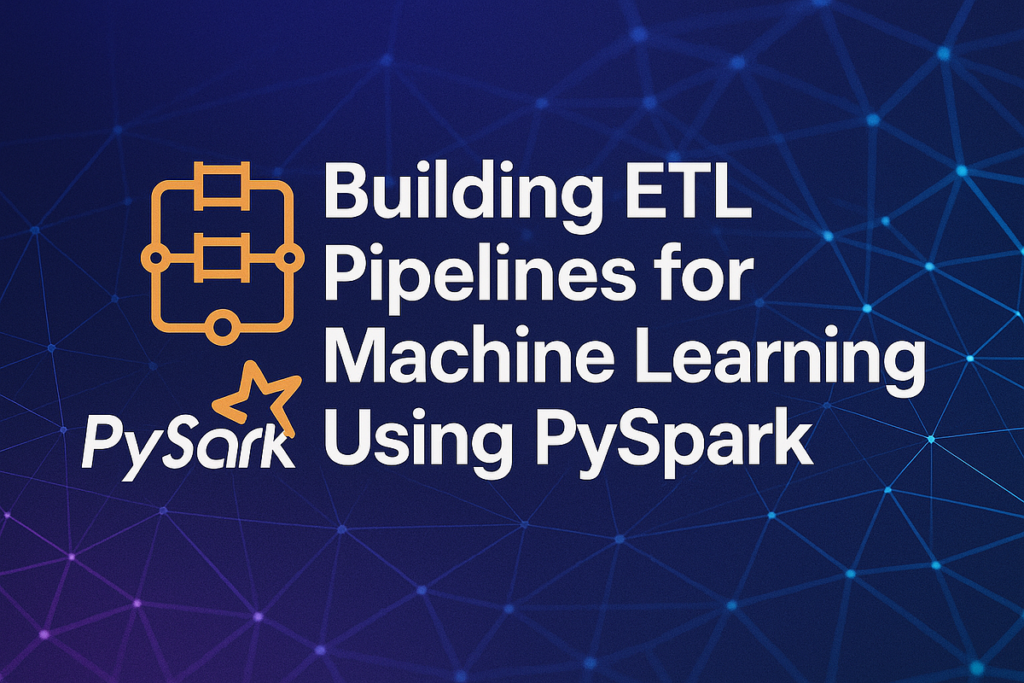In as we speak’s data-driven world, the success of machine studying tasks closely relies on the standard and preparation of information. Enter ETL (Extract, Remodel, Load) pipelines — the essential infrastructure that transforms uncooked, messy knowledge into clear, structured datasets prepared for machine studying algorithms. PySpark, with its distributed computing capabilities, has emerged as a robust device for constructing scalable ETL pipelines that may deal with massive volumes of information effectively. This text offers a complete information to constructing ETL pipelines for machine studying utilizing PySpark, from primary ideas to superior implementation.
ETL pipelines kind the inspiration of any data-intensive machine studying venture. They embody three vital levels: extracting knowledge from varied sources, remodeling it into an appropriate format, and loading it right into a vacation spot system for evaluation or mannequin coaching.
In contrast to conventional analytics, machine studying requires knowledge that isn’t solely clear but additionally correctly formatted for mannequin coaching. ETL pipelines for ML typically embody extra steps particular to machine studying workflows:
- Function engineering to create significant variables
- Information normalization and standardization
- Dealing with lacking values and outliers
- Splitting knowledge into coaching and testing units
- Encoding categorical variables
PySpark provides a number of benefits for constructing ETL pipelines, particularly for machine studying functions:
- Distributed computing: Processes massive datasets throughout a number of nodes
- Excessive efficiency: Optimized for knowledge processing duties
- Versatility: Handles each structured and unstructured knowledge effectively
- Constructed-in ML libraries: Gives seamless integration with machine studying algorithms
- Scalability: Simply…
